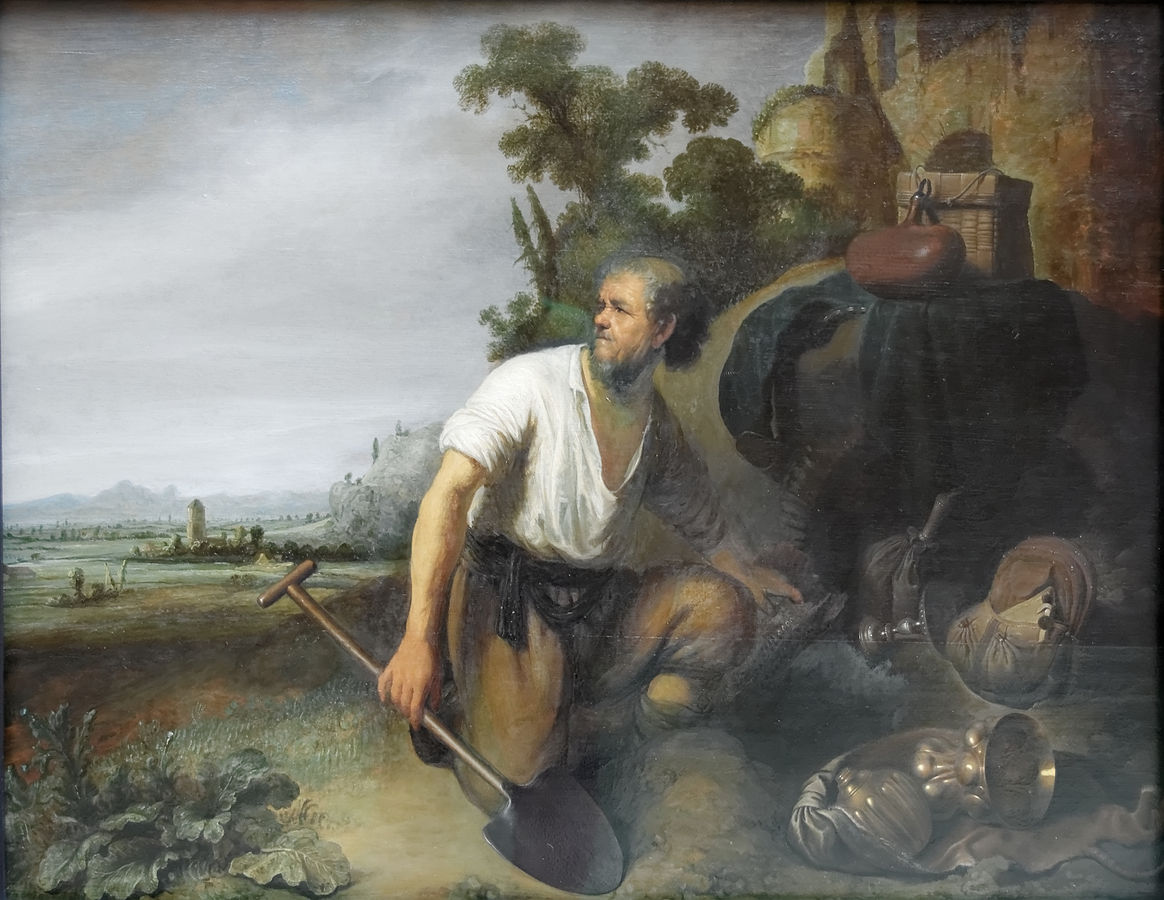by Lois Tverberg
Do not lay up for yourselves treasures on earth, where moth and rust destroy and where thieves break in and steal; but lay up for yourselves treasures in heaven, where neither moth nor rust destroys and where thieves do not break in and steal. For where your treasure is, there your heart will be also. Matthew 6:19-21 (NKJV)
When we read Jesus’ saying above, it sounds like a vague idea about setting our priorities on heavenly things rather than earthly things. In fact, the phrase “laying up treasure in heaven” is actually an idiom with a much more exact idea behind it than just being heavenly minded. In fact, it specifically refers to giving to the poor.
We find Jesus using the phrase this way in Matt. 19:21 when he’s speaking to the rich man. Jesus says, “If you would be perfect, go, sell what you possess and give to the poor, and you will have treasure in heaven; and come, follow me.”
Yet another example of this usage is found in another passage about “laying up treasure” from a Jewish writer before Jesus’ time:
Help the poor for the commandment’s sake, and turn him not away because of his poverty. Lose thy money for thy brother and thy friend, and let it not rust under a stone to be lost. Lay up thy treasure according to the commandments of the most High, and it shall bring thee more profit than gold. Sirach 29:9-11 (180 BC)

The logic behind this is that God is greatly concerned about the poor. When we give to them, we are loaning to God himself! We can be sure that we’ll be repaid in eternity. As Proverbs 19 says,
He who is kind to the poor lends to the LORD, and he will reward him for what he has done. Prov. 19:17
Even more important than our being rewarded is our attitude, according to Jesus. When we share with others two things happen: our priorities with money shift to pleasing God with our money instead of ourselves. We also develop a “good eye” — a generous attitude of concern for others, rather than a “bad eye” — a greedy, self-centered outlook. (Mt 6:22-23) Then we will be taking hold of the life that is truly life, as Paul says:
Command those who are rich in this present world not to be arrogant nor to put their hope in wealth, which is so uncertain, but to put their hope in God, who richly provides us with everything for our enjoyment. Command them to do good, to be rich in good deeds, and to be generous and willing to share. In this way they will lay up treasure for themselves as a firm foundation for the coming age, so that they may take hold of the life that is truly life. 1 Tim 6:17-19
Photo: Jacques-Louis David, Immo Wegman




 Jesus taught quite a bit about prayer, and through it he was revealing what our attitude should be toward our Father in Heaven. One thing he forbade was praying in “vain repetitions” or “babbling on and on,” meaning we shouldn’t try to coerce God into doing our will by repeating words over and over.
Jesus taught quite a bit about prayer, and through it he was revealing what our attitude should be toward our Father in Heaven. One thing he forbade was praying in “vain repetitions” or “babbling on and on,” meaning we shouldn’t try to coerce God into doing our will by repeating words over and over.
 Do not store up for yourselves treasures on earth, where moth and rust destroy, and where thieves break in and steal. But store up for yourselves treasures in heaven, where neither moth nor rust destroys, and where thieves do not break in or steal; for where your treasure is, there your heart will be also. Matthew 6:19-21
Do not store up for yourselves treasures on earth, where moth and rust destroy, and where thieves break in and steal. But store up for yourselves treasures in heaven, where neither moth nor rust destroys, and where thieves do not break in or steal; for where your treasure is, there your heart will be also. Matthew 6:19-21


